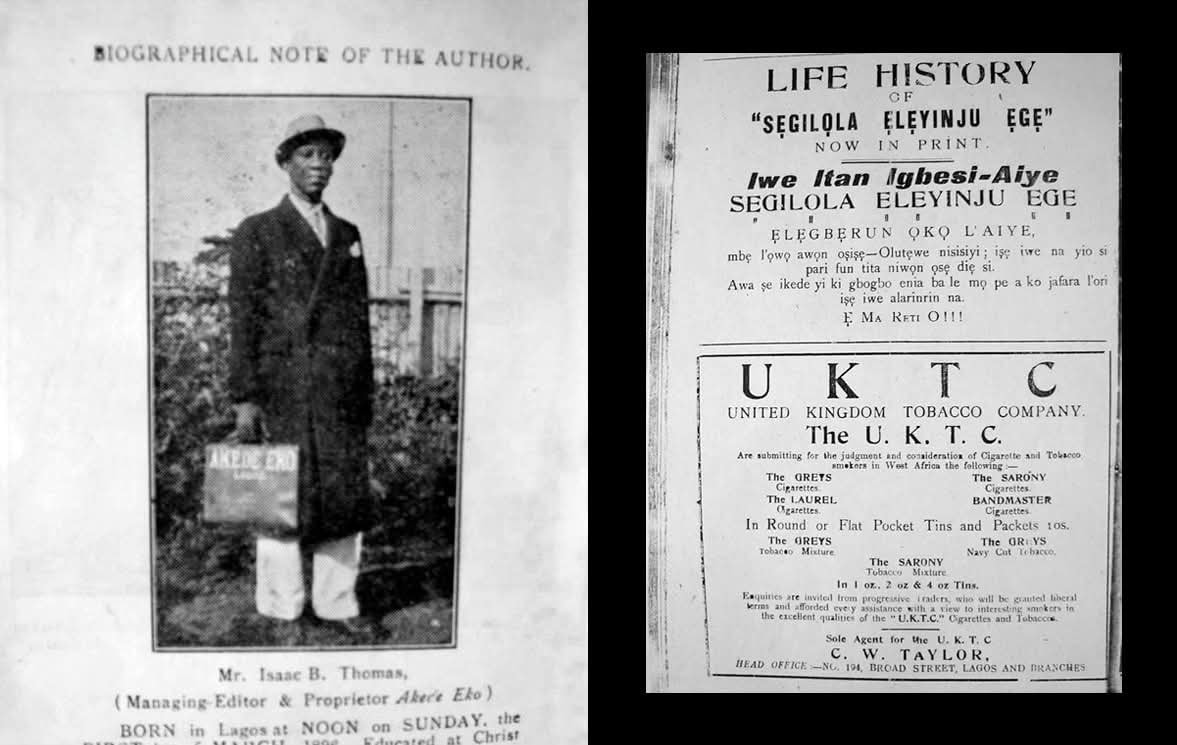The history of Nigerian literature and journalism cannot be told without mentioning Isaac Babalola Thomas (1888–1963), a pioneering journalist and cultural figure whose influence shaped early print media in Lagos. He is remembered not only for his groundbreaking work in journalism but also for authoring what is widely regarded as Nigeria’s first novel, Itan Igbesi Aiye Emi Segilola Eleyinju Ege (The Life Story of Me, Segilola).
Isaac B. Thomas: Journalist and Innovator
Born in Lagos in 1888, Isaac B. Thomas received his early education at Christ School. He rose to prominence as a journalist and publisher during the colonial era. In 1928, he founded the bilingual weekly newspaper Akede Eko, which published in both Yoruba and English, making news accessible to a wider audience in Lagos. A year later, in 1929, he made history again by launching The Nigerian Evening News, the first evening newspaper in West Africa.
Through these platforms, Thomas established himself as a bold voice in Nigerian journalism, addressing issues of colonial life, social morality, and urban politics in a city that was rapidly changing. His editorial style was direct and often sensational, capturing the attention of Lagosians eager for both news and entertainment.
The Story of Segilola Eleyinju Ege
Thomas is perhaps most famous for his serialized story, Itan Igbesi Aiye Emi Segilola Eleyinju Ege, which appeared in Akede Eko before being published as a book. Written in Yoruba, the story follows the life of Segilola, a beautiful but morally conflicted woman who was deeply entangled in Lagos’s nightlife. The narrative portrays her involvement in prostitution and crime, revealing both the allure and dangers of urban life in early 20th-century Lagos.
The book’s structure was based on a series of letters supposedly written by Segilola herself, giving it a personal and confessional style that drew readers in. Thomas’s use of moral lessons, social critique, and sensational storytelling made the book an instant success. It is widely regarded by scholars as the first full-length novel written in Yoruba and one of the earliest novels in Nigerian literature.
Cultural Impact and Controversy
The Segilola story was not without controversy. Its vivid depictions of immorality shocked conservative audiences, while its serialized format stirred widespread curiosity about the identity of the mysterious Segilola. Many readers debated whether she was a real person or a fictional creation of Thomas. Regardless, the novel opened up conversations about morality, gender, and modernity in Lagos society.
Today, Itan Igbesi Aiye Emi Segilola Eleyinju Ege is considered a landmark in Nigerian literary history. It represents the blending of oral storytelling traditions with modern print culture, while also highlighting the complexities of Lagos as a colonial city where tradition, religion, and modernity often clashed.
A Lasting Legacy
Isaac B. Thomas’s contribution to Nigerian media and literature is enduring. As the founder of influential newspapers and the author of Nigeria’s first recognized novel, he left a dual legacy as both a journalist and literary pioneer. His work with Segilola Eleyinju Ege not only entertained but also shaped the moral and cultural debates of his time.
Through his vision and daring, Thomas bridged the worlds of journalism, literature, and popular culture—cementing his place as a trailblazer in Nigeria’s intellectual history.
FOLLOW US ON:
FACEBOOK
TWITTER
PINTEREST
TIKTOK
YOUTUBE
LINKEDIN
TUMBLR
INSTAGRAM































